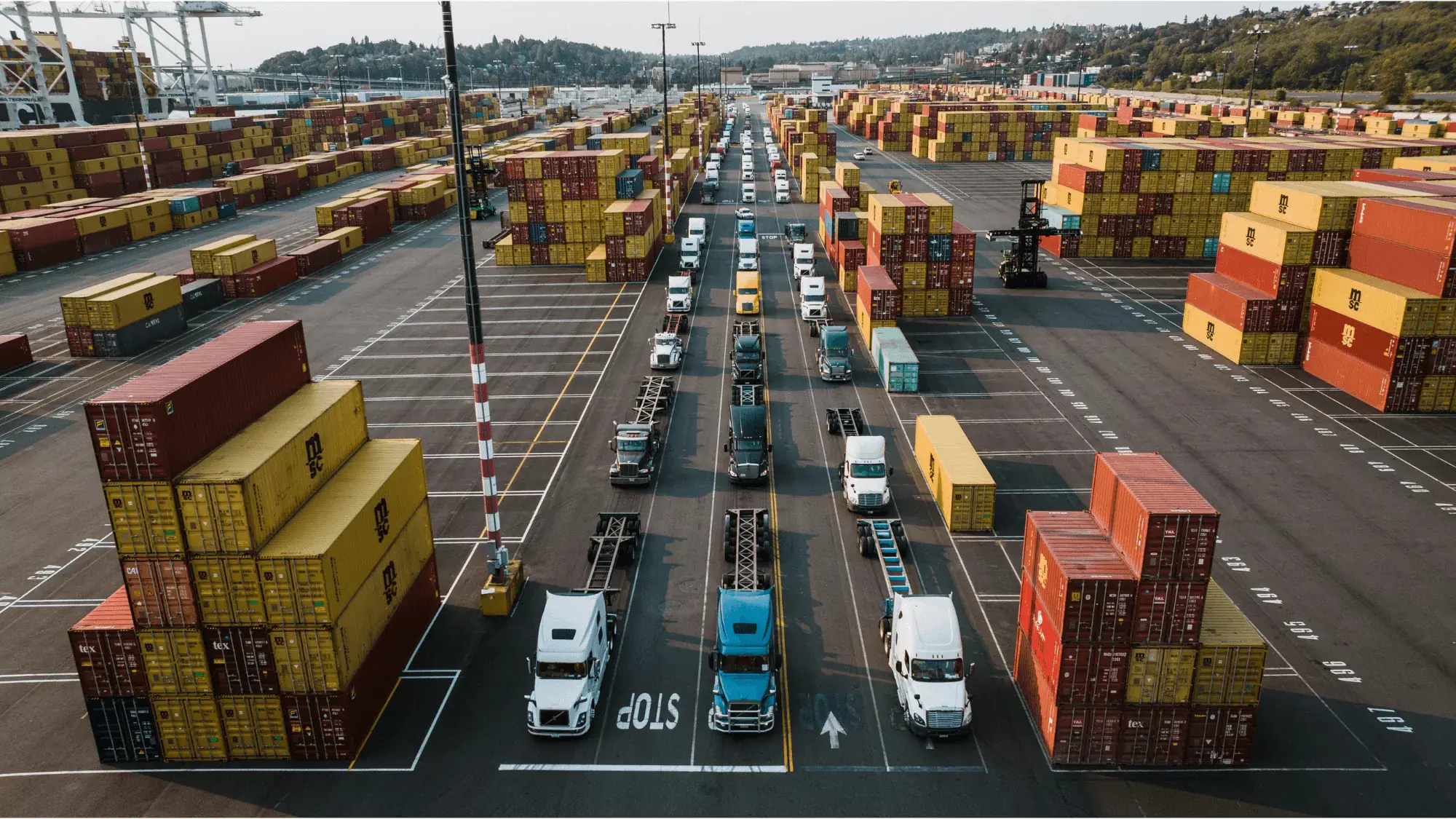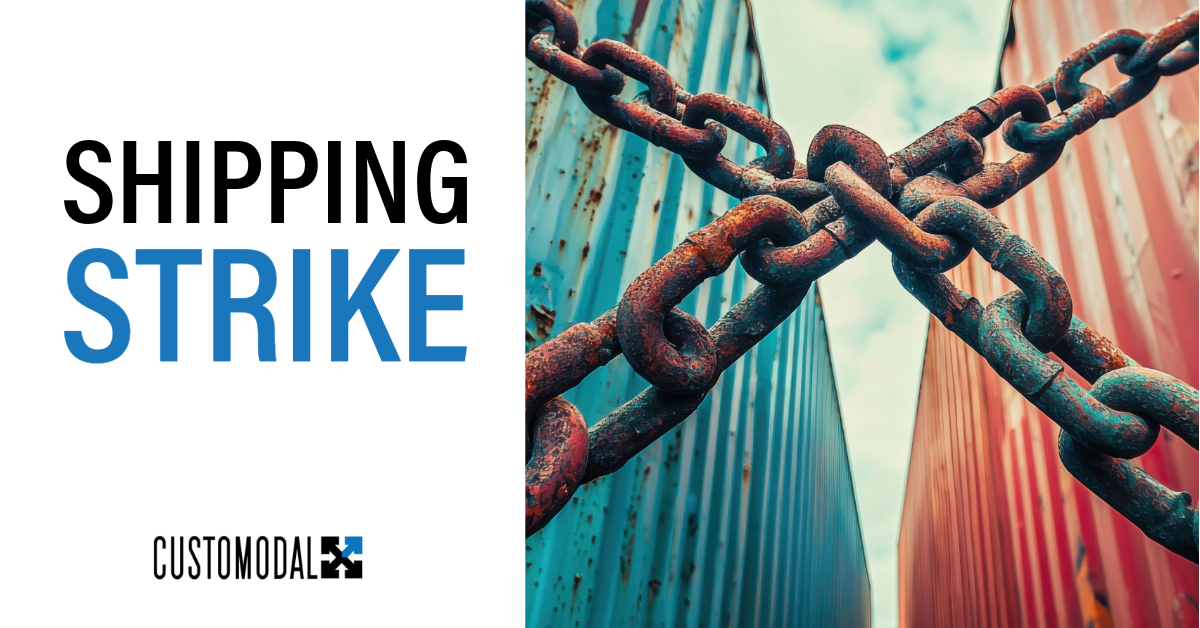
In the logistics industry, success hinges on more than just moving goods from point A to point B. It's about the connections that make those movements possible. For freight brokers and 3PLs, strong carrier relationships are the cornerstone of their service delivery. For shippers, your ability to achieve optimal outcomes directly depends on your logistics partner's commitment to these vital connections.
Understanding how these relationships function and their impact is essential for optimizing supply chain operations.
The Role of Carriers for Freight Brokers
At their core, freight brokers are matchmakers in the logistics world—connecting shippers with the right carriers to move goods efficiently. But here's the thing: a broker is only as good as their carrier network. It's not just a Rolodex; it's a living, breathing ecosystem of partnerships that makes or breaks their ability to deliver.
The Essentials: Capacity, Pricing, and Dependability
Think of it this way: shippers need reliable capacity. A broker with a solid network can tap into various options, ensuring they secure the right carriers and routes, even when the market gets unpredictable. Imagine a shipper suddenly needs to move a large volume of perishable goods. A broker with a robust network can quickly secure refrigerated trucks and appropriate routes, preventing spoilage and ensuring timely delivery. This kind of dependability is crucial for keeping supply chains moving.
And, of course, competitive pricing matters. A diverse network allows brokers to negotiate favorable rates, passing on savings to their clients. For instance, a broker with established relationships with multiple carriers operating on a specific lane can leverage those connections to secure better rates than a shipper might obtain directly. This cost-effectiveness is a key advantage.
Plus, shippers need assurance that their goods are in good hands. That's why brokers prioritize partnerships with reputable carriers known for on-time delivery and safe handling. Consider a situation where a shipper is transporting high-value electronics. Partnering with a carrier that has a proven track record of secure transport and timely delivery builds confidence and mitigates the risk of loss or damage. These relationships build trust and reinforce the broker's reliability.
Technology has significantly transformed how brokers manage these relationships. Modern TMSs streamline communication, enabling real-time updates and efficient problem-solving. Tracking technologies provide that all-important visibility, allowing brokers to proactively address potential issues. Furthermore, by automating tasks, technology frees up time to focus on strengthening those crucial carrier connections.
Carrier Relationships and 3PL Success
While freight brokers specialize in connecting shippers and carriers, 3PLs offer a broader suite of logistics services. This expanded scope makes strong carrier relationships even more critical. 3PLs are essentially the architects of complex supply chains, and their ability to execute these plans depends heavily on a reliable network of carriers.
The Foundation of 3PL Services: Transportation Management and Beyond
3PLs handle everything from transportation management to warehousing and distribution. When it comes to transportation management, efficient carrier partnerships are non-negotiable. Think of it like this: a 3PL might design a complex, multi-leg shipment involving various modes of transport. Without solid carrier relationships, coordinating and executing such a plan becomes a logistical nightmare. Reliable carriers ensure that each leg of the journey proceeds smoothly, minimizing delays and disruptions.
Furthermore, 3PLs often manage inbound and outbound logistics for their clients. This means coordinating the flow of goods into and out of warehouses and distribution centers. Consistent carrier relationships are essential for maintaining a steady flow of inventory, preventing bottlenecks, and ensuring timely deliveries. For instance, a 3PL managing the distribution of consumer goods during a peak season needs carriers who can reliably pick up and deliver shipments on schedule.
Let's not forget managed transportation services. When a 3PL takes over a shipper's transportation operations, it becomes the single point of contact for all shipping needs. This requires a deep bench of trusted carriers who can handle diverse requirements. These relationships enable 3PLs to provide comprehensive solutions, from routing optimization to freight auditing.
In an era where technology has unfortunately enabled an increase in fraudulent brokers and carriers, the security of shipments hinges on a 3PL with a deeply vetted, established carrier network. This growing industry challenge underscores the importance of choosing a 3PL that prioritizes building and maintaining trustworthy carrier partnerships, ensuring goods are handled by reliable professionals.
Data-Driven Decisions and Collaborative Partnerships
One key advantage of working with a 3PL is access to data and analytics. However, the quality of these insights depends on the information provided by carriers. Strong carrier relationships foster transparency and collaboration, allowing 3PLs to gather accurate data on performance, capacity, and market trends. This data enables 3PLs to make informed decisions, optimize routes, and proactively address potential issues.
Ultimately, a 3PL's success hinges on their ability to deliver on their promises. And that ability is directly tied to the strength of their carrier network. As the logistics landscape becomes increasingly complex and vulnerable to fraud, the expertise and established networks of seasoned 3PLs are more crucial than ever. This trend shows no signs of slowing down, making the selection of a reliable 3PL partner a strategic imperative for operational efficiency and peace of mind. By cultivating strong, mutually beneficial relationships with carriers, 3PLs can provide reliable, cost-effective, and efficient logistics solutions that drive value.
Mutual Benefits and Value Creation Through Carrier Relationships
The most effective carrier relationships are built on a foundation of mutual benefit, moving beyond simple transactions to create lasting value. For carriers, these partnerships offer tangible advantages:
-
Predictable freight volume: Consistent lanes and reliable volume provide a stable revenue stream, enabling carriers to optimize their operations and reduce empty miles.
-
Streamlined payment processes: Reliable payment terms and efficient invoicing systems ensure consistent cash flow, reducing financial uncertainty and administrative burdens.
-
Strategic growth opportunities: Access to new markets, specialized freight, or expanded service areas through established 3PL partnerships can accelerate a carrier's growth trajectory.
-
Operational efficiency improvements: 3PLs often provide technology and insights that help carriers optimize routes, reduce fuel consumption, and improve overall efficiency.
-
"Services not seen": These include priority access during peak seasons, flexible scheduling, and proactive communication. This is the "relationship capital" that goes beyond contractual obligations, offering a competitive edge.
Beyond these direct benefits, strong partnerships foster open communication, enabling proactive problem-solving. When unforeseen challenges arise, collaborative partners can quickly align on solutions, minimizing disruptions and maintaining service levels. Long-term planning becomes more strategic, as both 3PLs and carriers can align their resources and strategies to meet evolving market demands. This collaborative approach leads to a more agile, resilient, and responsive supply chain, ultimately creating greater value for shippers and end consumers.
The Indispensable Link: Building a Resilient Supply Chain
The strength of carrier relationships stands as a cornerstone for success. For freight brokers and 3PLs, these partnerships are not merely transactional but the lifeblood of efficient operations and reliable service delivery. By prioritizing mutual benefit, fostering open communication, and leveraging technology, logistics partners can create a resilient and responsive supply chain.
For shippers, this translates to tangible benefits: increased reliability, optimized costs, and enhanced visibility. These strong connections ensure consistent capacity, competitive pricing, and dependable service, ultimately driving value for shippers and end consumers alike.
Building and maintaining these vital relationships is an ongoing process, requiring dedication and strategic investment. If you're looking to optimize your logistics operations and build a robust carrier network, Customodal can help. With our extensive experience and network of strong carrier partnerships, we provide tailored solutions to meet your unique needs.
Contact Customodal to learn how we can help you strengthen your supply chain.




